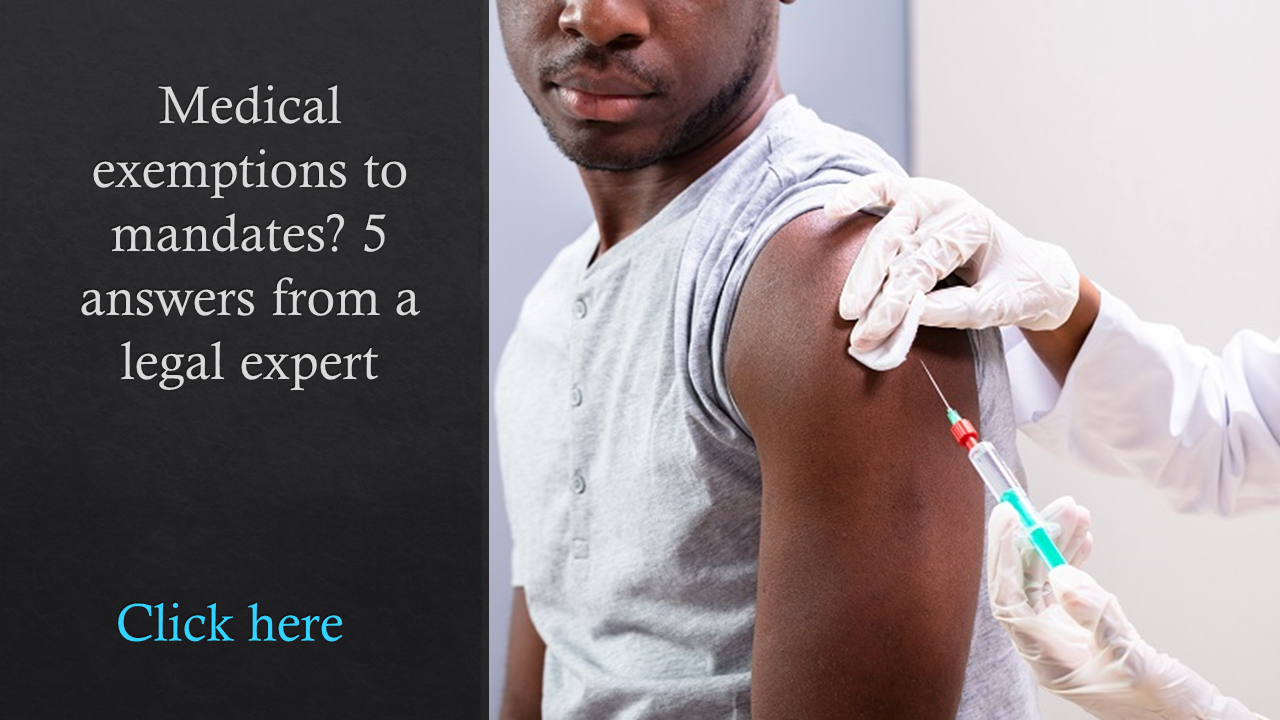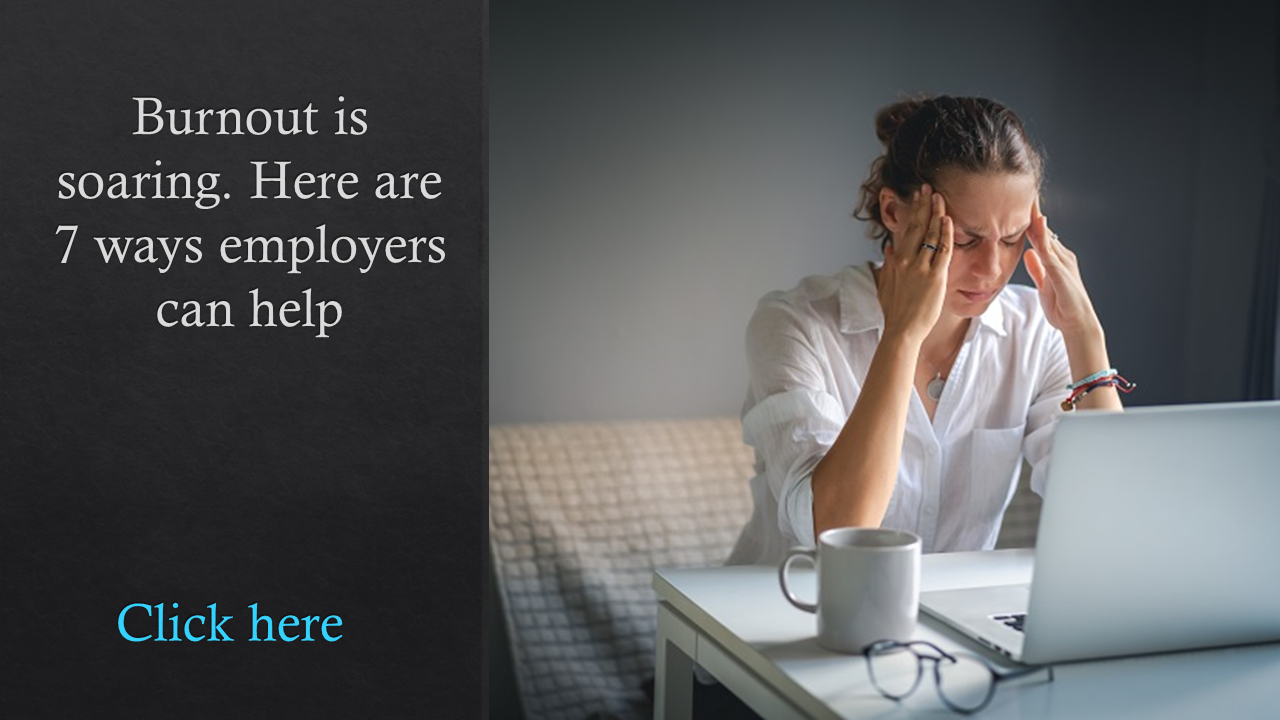As the Omicron variant surges across the nation, resulting in a record number of COVID-19 infections, it feels like déjà vu for many employers. And in some ways, the latest surge is more complex—adding more questions than answers—than even the beginning of the pandemic when lockdown and quarantine were the go-to strategies for organizations.

Dr. Neal Mills, chief medical officer at Aon
“Omicron is disrupting all kinds of plans,” says Dr. Neal Mills, chief medical officer and senior vice president of Aon’s health and benefits practice “You can’t have holiday events or return to offices when this is happening. There are conversations about booster shots and testing and COVID spread in the office. A lot of this is a more complex problem today than it was one year ago or two when we turned to lockdowns.”
So how are—and how should—employers respond to Omicron? How can they help employees facing problems from the new variant? For answers, HRE spoke to Mills.
HRE: How are you seeing employers respond to this surge and variant, and how should they be responding?
Mills: It’s certainly requiring HR and other leaders to stay on top of communications. Some employers are changing guidance again on masks, saying, ‘Do we provide N95s because the cloth masks do not seem to provide protection against Omicron?’ Or requiring mask-wearing at [employees’] desks as well as in common areas because it’s so much more infectious. And providing even more flexibility on working from home until we get through the surge. Every policy has to be revisited.
The early-year return to office has been delayed by the bulk of the clients we’re working with in light of the surge because it’s unfathomable to bring your employees back during a surge. There is a lot up in the air, and employers are choosing to be on the conservative side, since bringing your employees back too soon can be just as disruptive, and perhaps even more disruptive, than the status quo where employees are working from home. Many are trying not to create increased disruption.
HRE: Although most organizations that can are continuing remote work, what about employers and workplaces that need in-person employees? What advice do you have for them?
Mills: Continue with the multi-layered mitigation strategies, do your very best to encourage social distancing, hand sanitizers, frequent hand washing, the N95 masks, requiring booster shots since there are the additional layers of protection. And anticipate disruptions in the supply chain, because all of those disruptions are being currently exacerbated by Omicron and the availability of staff to transport goods or get the goods that you need to run your business.
HRE: The booster shots are a big part of the conversation now. Do you think more employers are going to not only encourage employees to get the third shot but require them to get them?
 Mills: Yes, I do anticipate more employers requiring those booster shots. And employers are very curious to know when that definition of fully vaccinated is going to include the boosters.
Mills: Yes, I do anticipate more employers requiring those booster shots. And employers are very curious to know when that definition of fully vaccinated is going to include the boosters.
The intensity around the last few weeks has prompted employers to develop documents and communications that are going out to employees that say companies are now going to require the booster shots, because employers do recognize that there’s an added layer of protection.
Related: How booster shots can help employers manage Omicron surge
HRE: You mentioned the communication piece and that being important right now. Can you tell me a little bit more about how important employer communication is—for HR and other company leaders to continually talk to employees about the latest about COVID, about tips on staying safe, strategies and so on?
Mills: This is incredibly important because there’s so much misinformation out there. And, of course, the information is so dynamic that frequently, you’re going to have one of your chief clinicians reviewing information just before you send it out to make sure it reflects everything that’s happened in that week or even that day. But what we’re really advising employers is to speak in terms of flexibility that allow for them to match and address the dynamic situation that we’re in.
When Omicron came on the scene in December, and in our analytics models when we were seeing and predicting that there would be a surge in January, we were advising clients that it may not be realistic to have holiday events or to do the return to office. But we also told employers they need to tell employees that there’s going to be some flexibility in how they do their return to office. Employees are tired of this whiplash and getting ready to return to office and securing the childcare and then it not happening. How many times has that happened? How many more times will it happen?
And all of this in the backdrop of what looks like sometime in the spring, we may have a more endemic situation, where COVID is less disruptive because we do have oral treatments, and perhaps some monoclonal treatments, that are effective at our disposal. So we’re going to have more tools. The overwhelming majority of Americans have some level of antibodies to COVID, either through vaccinations or having a COVID infection or a blend of the two. So does COVID have to be as disruptive going forward? I think the mindset for employers has been flexibility. Those that have the most flexibility were able to weather some of the surges. That mindset, over the next three to six months, is going to be important. That’s the type of language that should be used in communications with employees.
HRE: This whiplash that you mentioned—we’re all going through so much. How difficult is the consistent stress of the pandemic for mental health?
 Mills: There’s no ocean of Xanax or therapists that can address this. It’s going to be something much more encompassing. So many companies are re-evaluating their purpose and how they’re going to serve their employees, but also facilitate this really mission-critical, emotional connection that we’re all looking for, that defines us as human beings and something that we all crave.
Mills: There’s no ocean of Xanax or therapists that can address this. It’s going to be something much more encompassing. So many companies are re-evaluating their purpose and how they’re going to serve their employees, but also facilitate this really mission-critical, emotional connection that we’re all looking for, that defines us as human beings and something that we all crave.
Related: 7 employer strategies to support growing mental health challenges
HRE: How vital is employer support and help right now? What are some of your best suggestions for employers in that regard?
Mills: Whatever employers can do to contribute to the instinct for human connection, which facilitates wellbeing, would be greatly appreciated by employees because I think that’s what they’re craving the most—especially in light of many of us needing to, once again, isolate ourselves from others, in light of all of the travel snafus and in light of the historical COVID infection rates that we’re seeing right now. Just any sort of emotional support that can be given: apps that focus on meditation and awareness, or creativity and thought or challenging unhelpful thought patterns, for example, would be an immense support to employees.